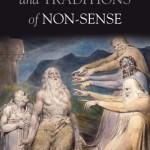We run our website the way we wished the whole internet worked: we provide high quality original content with no ads. We are funded solely by your direct support. Please consider supporting this project.
What the New Testament Says about Annihilation
Yesterday, we posted a piece on annihilationism and how this view interprets passages that seem to point to eternal punishment in hell. (Click here for yesterday’s post.) Today’s post speaks to teaching in the New Testament that annihilationists say support this view:
Consuming fire. John the Baptist proclaimed “every tree … that does not bear good fruit is cut down and thrown in the fire” (Mt 3:10). He announced that the Messiah “will clear his threshing floor and will gather his wheat into the granary; but the chaff he will burn with unquenchable fire” (Mt 3:12). Jesus himself repeats this imagery of hell as a consuming fire several times (Mt 7:19; 13:40).
The author of Hebrews writes that those who fall away from Christ are like ground that produces only “thorns and thistles … Its end is to be burned over” (Heb 6:8). To all who resist the truth there remains only “a fearful prospect of judgment, and a fury of fire that will consume the adversaries (Heb 10:27). Annihilationists argue that the term consum (esthio) in this context denotes total annihilation.
Hell is destruction. Frequently it is said of the wicked that they will be “destroyed.” For example, Jesus contrasts the wide gate that “leads to destruction” with the narrow gate that “leads to life” (Mt 7:13-14). Destruction clearly contrasts with life in this passage, and this annihilationists argue, at least implies cessation of consciousness such as when a person is dead. Along similar lines, Jesus tells his disciples not to fear those who kill the body but cannot kill the soul; rather, “fear him who can destroy both soul and body in hell” (Mt 10:28). The implication is that God will do to the soul of the wicked what humans do to the body when they kill it. This, annihilationists argue, implies that the soul of the wicked will not go on existing in a conscious state after it has been destroyed.
Hell as corruption, perishing and death. Another common way of expressing the fate of the unsaved in the NT is to depict them as suffering “corruption” (plethora). “If you sow to your own flesh,” writes Paul, “you will reap corruption from the flesh” (Gal 6:8). The ordinary meaning of this term is Greek is “ruin, destruction, dissolution, deterioration, corruption.” So, at the very least, this term entails a loss of consciousness, according to annihilationists.
The NT also frequently expresses the destiny of the wicked by depicting them as dying or perishing (apollymi). John proclaims the good news that God sent Jesus so that “everyone who believes in him may not perish but may have eternal life” (Jn 3:16). Jesus teaches that “those who find their life will lose it, and those who lose their life … will find it” (Mt 10:39). To annihilationists, the contrast in these passages between death, losing life and perishing, on the one hand, and life, on the other, is incompatible with the contrast of eternal bliss with eternal pain that the traditional teaching on hell presupposes. They instead connote a total loss of consciousness, if not total extinction.
God’s victory. Finally, annihilationists argue that only this view explains the biblical motif of God’s final and ultimate victory over all evil. How are we to envisage God’s triune love reigning supreme if at the same time we must envisage multitudes of people and fallen angels in hopeless torment throughout eternity? How can we affirm that Christ will be over all (Eph 1:10) and that God will be “all in all” (1 Cor 15:28) when there will be a dimension of reality perpetually opposed to God? The portrait of God’s final victory suggested by the traditional view is incoherent, according to annihilationists, for God remains nonvictorious. Instead of a glorious universal kingdom unblemished by any stain, an ugly dualism reigns throughout eternity.
Annihilationists also question how heaven could ever be enjoyed as heaven if we knew that loved ones were at every moment being hopelessly tormented without relief. Only if the wicked have been altogether extinguished as the inhabitants of Sodom and Gomorrah (2 Pet 2:6) and have vanished “like a dream when one awakes” (Ps 73:20) can we ever truly enjoy the bliss of heaven, annihilationists argue. The joy of heaven is only conceivable if the damned have been annihilated and are remembered no more.
—Adapted from Satan and the Problem of Evil, pages 332-336
Category: General
Tags: Annihilationism, Eschatology, Hell, Warfare Worldview
Related Reading

God of Sense and Traditions of Non-Sense
As the title suggests, in his book, God’s Problem: How The Bible Fails to Answer Our Most Important Question – Why We Suffer, Bart Ehrman argues that the Bible has nothing compelling to say about the problem of evil. Well, I just put down a beautifully written four-hundred and fifty page book that compellingly argues…

Lord Willing? Part 2
In Part 2 of Greg’s interview of Jessica Kelley about her book Lord Willing?, they discuss the theology that helped Jessica through her son Henry’s illness and death. You can find Part 1 of the interview here, and part 3 here.

The Warfare Worldview: What Would You Tell the Younger You?
Aftab Uzzaman via Compfight Jessica Kelley has been fleshing out the Warfare Worldview on her blog in a series of posts using the lens of the death of her child, Henry. Jessica is a beautiful writer, and her reflections are powerful and tender. You’re going to want to be listening to her. Her voice is an…

Some Questions a Year After Her Child’s Death
Jessica Kelley wrote a post for The Jesus Event that we wanted to share with you. You might remember that last year we were getting to know Jessica as she lost her four year old son Henry just before Christmas. In this post, she reflects on the theology of the people around her concerning her son’s death. She has…

4 Reasons to Wake Up to the Warfare Worldview
Image by postbear via Flickr A view of the world that grounds the problem of evil in spiritual warfare is not one that many modern people find easy to accept. To many contemporaries, the notion is preposterous that real, semi-autonomous, self-determining, and invisible spirits exist that can and do influence our lives. The whole thing sounds…

What Hinders Answers to Prayer
Prayer is powerful and effective, but it’s not magic. There is no automatic guarantee that what we’re praying for is going to come to pass, even when we’re praying with faith and in accordance with God’s will. Prayer is a form of co-laboring with God to change the world in a Kingdom direction. Yet, it’s…
